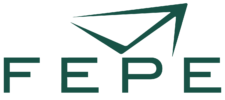Previous releases...
A challenge to freedom of advertising
Envelope industry defends itself against demands to introduce an opt-in regulation in Germany
Düsseldorf, September 2021 (FEPE Office Germany)
Translated from German press release
FEPE member companies see the freedom of advertising, which is part of the market economy system, increasingly at risk. For example, the action group “Last Advertising” and the German Environmental Aid (DUH) have recently again publicly demanded that the opt-out regulation, which has proven itself in Germany, should be replaced by a strict opt-in regulation. This would mean that unaddressed advertising may only be delivered if the mailbox is provided with a sticker “Advertising – yes please”. According to FEPE, the system changeover could cost thousands of jobs in the printing and weaving industry.
In the opinion of the FEPE, the Deutsche Umwelthilfe (DUH), the action group “Letzte Werbung” and also a part of the political parties are fundamentally critical or even hostile to the freedom of advertising, which is part of the market economy system. Advertising is increasingly becoming an enemy image, because advertising “seduces” consumers to buy actually unwanted products such as meat, sweets or SUVs and should be restricted as quickly as possible from the point of view of advertising skeptics. To achieve this goal, reducing print advertising seems to be the ideal starting point.
Advertising is a core element of the market economy
Advertising, however, is a core element of our market economy system. It primarily serves to provide information about products and services and creates price transparency for consumers. In addition, parties and institutions also advertise for members and donations. This is particularly evident these days, when parties that advocate a consistent opt-in also throw unaddressed election advertising into the mailboxes.
Advertising therefore fulfils an important purpose in our economic order and therefore deserves recognition and by no means a negative attitude.
In addition, every consumer is already free to ban unwanted advertising from his mailbox by means of a corresponding sticker. Around 30% of consumers also make use of this right. But this is not enough for the initiators of the opt-in campaign. From their particular point of view, consumers are simply not doing what they should be doing.
DUH calls for opt-in regulation and 20 cents environmental levy on brochures
DUH and the action group “Last Advertising” therefore demand the immediate introduction of an opt-in regulation in Germany, which is justified by alleged savings of 535,000 tons of carbon dioxide, and an environmental levy of at least 20 cents should be levied on every printed advertising brochure that is distributed as direct mail to mailboxes.
However, this is not enough to urge postal service providers to reconsider the delivery of unaddressed advertising. In particular, Deutsche Post’s “Einkauf Aktuell” is the special focus of advertising skeptics.
Opt-in puts thousands of jobs in the printing industry at risk
Quite apart from the extremely dubious DUH calculation method of CO2 savings, the digital solutions mentioned as an alternative devour enormous amounts of electrical energy. Entire server farms must be kept available for this purpose, which of course cannot be operated CO2-free. But in reality, the initiators of the opt-in are concerned with something completely different. As with some other issues, supposedly progressive forces are striving to re-educate the population. Consumers are to be forced to change their behaviour and now also ban advertising from their mailboxes as completely as possible. This can also be found in the election programmes of some parties.
The Federal Association of Printing and Media (bvdm) has just reported on this in detail last week.
However, advertising critics carelessly overlook the fact that around 500,000 people will work in the advertising industry in 2021, more than 100,000 of them in the printing industry and its affiliated areas. Many of them could lose their jobs due to ill-considered decisions.
In the envelope industry alone, around 2 billion advertising envelopes are available through a consistent opt-in.
Fepe, in close cooperation with other associations, will defend itself by all means against a nonsensical opt-in system change. “Under no circumstances will we allow the market-based element of “advertising” to be demonized in Germany. Advertising must not become an enemy image,” said a spokesman for FEPE.
Dipl.oec. Udo Karpowitz (FEPE Germany)
About FEPE (Federation for envelopes and for light and ecommerce packaging in Europe)
FEPE is an international association representing more than 100 companies directly or indirectly linked to the envelope industry in Europe. These are envelope manufacturers envelope printers and suppliers to the envelope industry. Most of the members are located in Europe. However, FEPE has a number of international members who have an interest in European envelope manufacturing.
FEPE was founded in 1957 with the aim of supporting the industry and its members. In 2007, its office moved from Zurich to Brussels in order to be able to promote the industry in Europe in an even more targeted manner.
